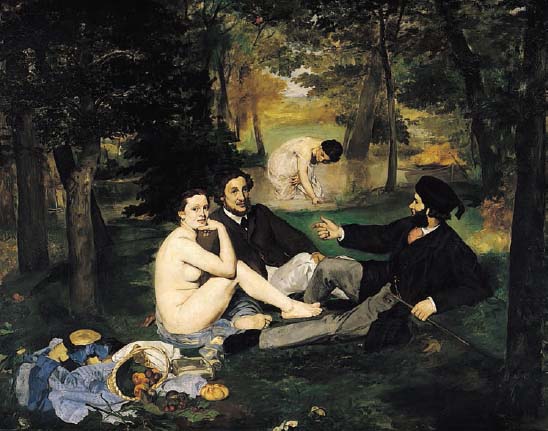From the Industrial Revolution to World War I, C. 1850–1914Late Nineteenth-Century Painting |
Who was Manet? |
Eduoard Manet (1832–1883) is considered by many to be the first modern painter. He not only bridged the gap between Realism and Impressionism, but his work foreshadows early twentieth-century painting styles and approaches. He was highly knowledgeable about art history, and fiercely rebellious, preferring art he deemed “sincere,” rather than perfect. Along with thousands of paintings by other premier artists of his day, Manet’s work was rejected by the Salon, the official art exhibition of the Palace of Fine Arts. But, Manet had the opportunity to shock critics and viewers at a specially organized Salon des Refusés, or, “Salon of the Rejected,” with his painting Le Déjeuner sur l’Herbe (The Luncheon on the Grass) (1863) and again in 1865 with another masterpiece, Olympia. Though Manet’s work drew inspiration from the Great Masters, he focused on scenes of modern life, including café and leisure scenes around Paris, war paintings, and lithographs inspired by contemporary literature. His work is among the most critically acclaimed and valuable in all of art history; however, Manet never achieved this kind of universal recognition during his lifetime. Now, he is considered one of the founding fathers of modern art.

Because of its nudity and painting style, Eduoard Manet’s Le Déjeuner sur l’herbe (The Luncheon on the Grass) shocked the 176 viewing public in Paris when it was exhibited at the Salon des Refusés in 1863.
